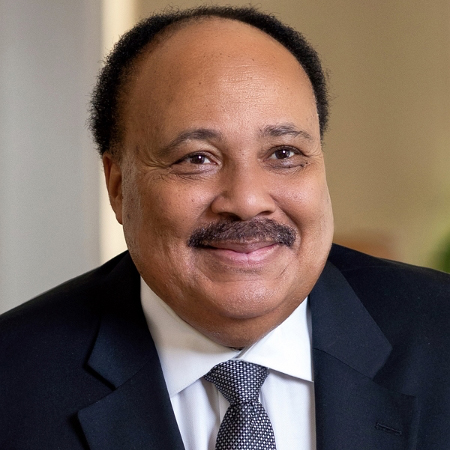Over the past several months, we have seen state legislatures around the country move swiftly to try to limit the rights of Americans — and particularly Black Americans — at the ballot box. In doing so, Republicans in these legislatures are pushing a modern-day Jim Crow agenda. Congress must now move to stop them quickly, decisively and by any legislative means necessary.
Unfortunately, America has a long, troubled history when it comes to voter suppression. After Reconstruction, Southern states disenfranchised African Americans from voting with poll taxes and unanswerable questions on “literacy tests.” These tactics were incredibly effective and the numbers of Blacks who were registered to vote eventually dwindled to single percentages in states like Mississippi.
Martin Luther King Jr., my father, knew that to bring about equality, African Americans must have the right to vote. He spent June through August of 1964 in Mississippi registering voters as part of the Freedom Summer. He did this amid intimidation, discrimination and violence, always understanding the high stakes around securing voting rights.
Former Rep. John Lewis and Hosea Williams, instrumental leaders in the fight for voting rights, led more than 600 activists across the Edmund Pettus Bridge in Selma, Alabama, in 1965. The day is etched in both the American psyche and in history books as “Bloody Sunday,” because of the violence that state troopers brought to these peaceful marchers.
But not only did my father organize, march and teach the tactics of nonviolence, he also pushed former President Lyndon B. Johnson and Congress to recognize the plight of their Black brothers and sisters — and to act.
Finally, Congress passed the Voting Rights Act of 1965, preventing discrimination at the ballot box and including specific provisions that protected voters in the South -— many of the same voters who were beaten and bloodied when trying to exercise their rights in the years prior. But in 2013, the US Supreme Court gutted the Voting Rights Act in Shelby County v. Holder, which allowed states to once again create obstacles for voters and paved the way for a new era of Jim Crow voter-suppression tactics.
Legislation to suppress the vote continues to gain traction around the country, led by Republicans in state houses who are unhappy with last November’s election results. But let’s be clear about what American saw last November — record voter turnout, not voter fraud.
If America wants to promote democracy around the world, it must set the example and ensure that all citizens have the right to vote.
As my father would have, I will continue to use my voice to call for what is right, what is just and what is equitable.
To bring back the safeguards that my father spent his life fighting for, Senate Majority Leader Chuck Schumer must bring voting rights legislation to the US Senate floor for a vote. And the procedural hurdle standing in the way of passage — the filibuster — must be removed. While the US House of Representatives can pass a bill with a simple majority, the 100-member Senate generally requires 60 votes. However, in this political climate, getting 60 votes seems close to impossible — and so eliminating the filibusterwould mean the bill would only need a simple majority for the Senate to pass.
The filibuster has historically been used as a tool to try to keep segregationist policies in place. In the 1920s, it was employed to stop anti-lynching legislation from moving forward. In the 1950s, Sen. Strom Thurmond of South Carolina famously held the longest filibuster on record to delay, unsuccessfully, civil rights measures. And in a failed effort to block the Civil Rights Act of 1964, southern segregationists filibustered the bill for 60 working days.
It is long past time that we stop using the filibuster to greenlight racist policies.
The John Lewis Voting Rights Act and the For The People Act stand ready for US Senate action and will help to restore faith in America’s democracy. The John Lewis Voting Rights Act would restore the Voting Rights Act of 1965 and ensure that states are not employing voting measures that are discriminatory and deny citizens the right to vote. In addition, the For the People Act would make voting and voter registration easier and more secure, and take big money and influence out of politics.
If there was ever a time to eliminate the filibuster, it is now.
Voters knew how high the stakes were when they went to the ballot box in November, and then again when Georgians came out in record numbers in January for the runoff that decided control of the Senate. A majority of Americans elected Democrats, and it is time that these elected officials take a firm stance on America’s democratic values and principles by ensuring that we all have the right to vote.
Even today, my father’s words ring true: “So long as I do not firmly and irrevocably possess the right to vote I do not possess myself. I cannot make up my mind — it is made up for me. I cannot live as a democratic citizen, observing the laws I have helped to enact — I can only submit to the edict of others.”



